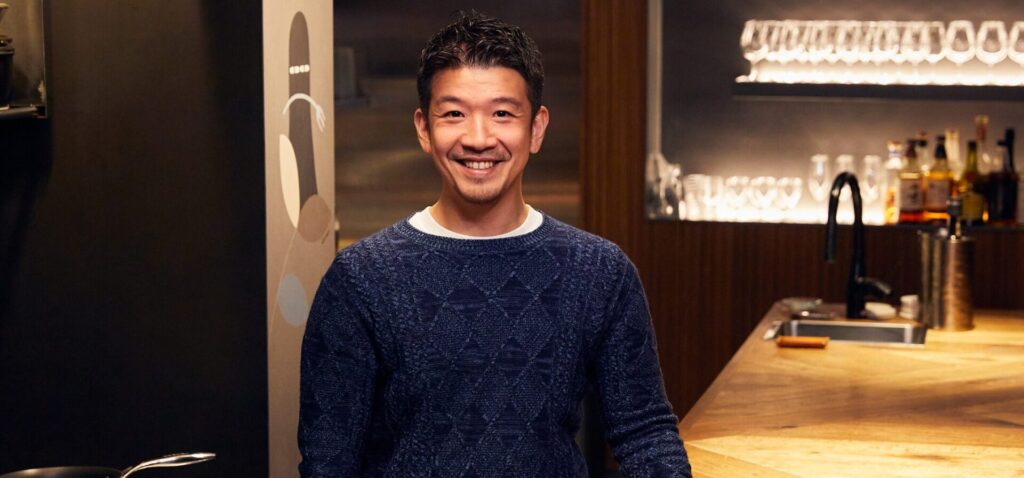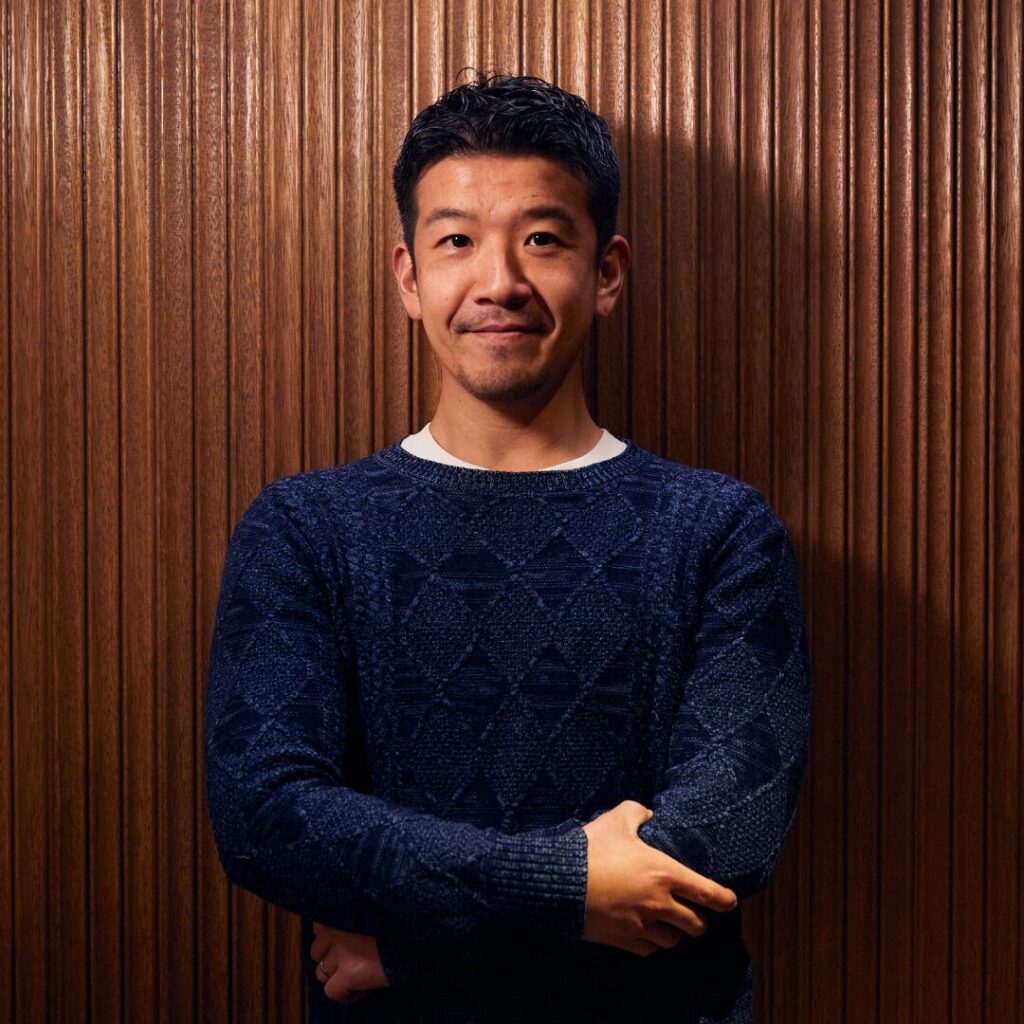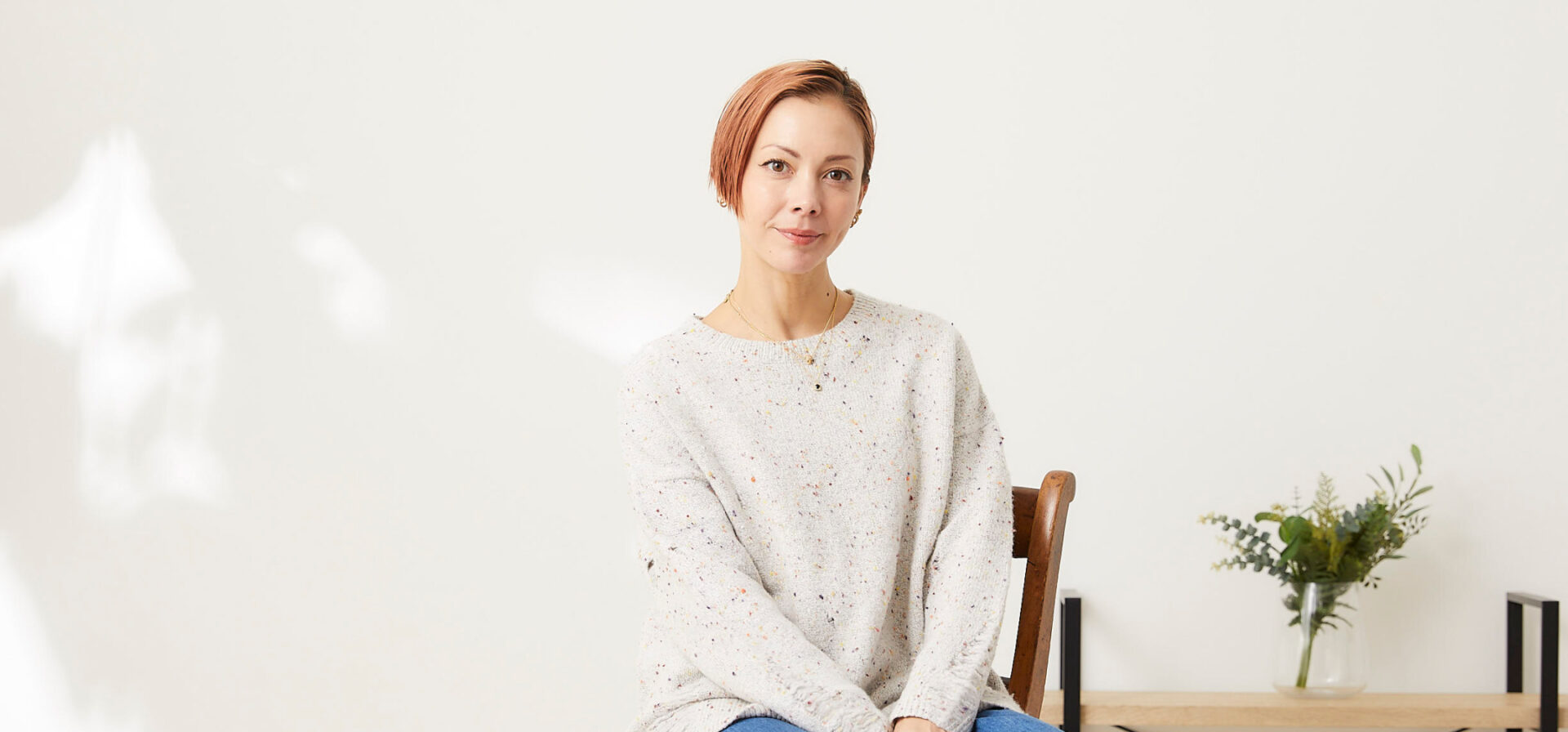Chef Fumio Yonezawa: ‘Don’t Miss the Small Signs’ – Conditioning Techniques for an Irregular Lifestyle, by Listening to Your Body
2024.04.11
How do professionals who continue to challenge themselves in various fields such as sports, business, art, and culture approach their bodies and unleash their potential? We ask about the "conditioning" they practice in their lifestyles.
We interviewed Chef Fumio Yonezawa, who, after becoming the first Japanese sous chef at Jean-Georges, a consistently Michelin three-star luxury French restaurant in New York, has become active both domestically and internationally, to discuss his personal conditioning methods.
*Conditioning, as defined by TENTIAL, is the act of optimizing all factors related to one's physical condition to improve life performance.
Irregular Lifestyle
Mr. Yonezawa, how conscious are you of conditioning (maintaining your health) in your daily life?
Lately, with age, I've been compelled to think about it. I was born in 1980, so I'll be 44 this year, and I started noticing changes in my physical condition around age 37. After turning 40, presbyopia began last year or the year before. But I don't like the term 'presbyopia,' so I've taken to calling it 'vintage eye'.
'Vintage eye' is a wonderful name.
My blood pressure has also become slightly elevated. Unlike in my 20s, various parts of my body are now under strain. For this reason, for about two years now, I've been attending personal training once a week, primarily focusing on bodyweight strength training. I even brought a 'pull-up handle' to the restaurant and hang from it during my free moments. Since the beginning of this year, I've also started running.

However, due to the nature of my work, I get home late. Yesterday, after the restaurant closed and I finished cleaning up, it was past 1 AM. By the time I got home and did various things, I wouldn't go to bed until 3 AM, or 2 AM at the earliest. The lifestyle cycle for those of us in the restaurant industry is not good for our bodies.
Besides being a chef at the restaurant, you are involved in various other endeavors, aren't you?
Yes. In addition to consulting work such as menu development and concept planning for restaurants and hotels, I recently participated in events like 'Mie Gastronomy,' hosted by Mie Prefecture, where I developed recipes using Mie ingredients and gave lectures for restaurant professionals. I have also been featured in magazine articles and published about three recipe books.

As for social welfare activities, I have consistently planned and ordered recipes, and provided meals for 50 people while giving cooking instructions at 'Ronald McDonald House,' a lodging facility for children with illnesses or disabilities and their families. At this restaurant, I sometimes fully reserve the morning hours to conduct similar initiatives.
Indeed, it seems challenging to establish a routine with that workload.
That's right. This yearsecondhalf, from now on, I plan to avoid daytime work as much as possible. I want to shift to a lifestyle where I can exercise and get proper sleep during those hours. To achieve this, I also need to increase the value of my work. Instead of doing a lot of work to earn more, I aim to generate income through high-quality work.
'Don't Miss the Small Signs'
What do you pay attention to for conditioning amidst all this?
It's about 'not missing the small signs.' There are times when I feel like, 'Oh, do I have a cold today?' or 'I've been a bit tired lately.' At such times, I might not be able to do as many pull-ups as usual, or my running progress might be slow. When such 'signs' appear, I try to cut out anything unnecessary from my overly packed schedule and pay more attention to my diet than usual.
For example?
My meal times and quantities are incredibly irregular. Since I also do work other than being a chef, I often have opportunities to dine with people from various industries. Therefore, when I can control my meals in my private life, I make them as healthy and light as possible. For example, I might only have salad or soup, or since I like miso soup, I buy vegetables and make miso soup with plenty of ingredients.

It's less about 'trying to eat fermented foods' and more about 'I like fermented foods, so I end up eating them.' The same goes for 'aged brown rice.' If you cook brown rice in a pressure cooker and then let it sit in a thermal jar for 48 hours, stirring occasionally, the brown rice becomes chewy due to fermentation. Brown rice is highly nutritious and delicious to eat. With a little salt, it's even tastier than freshly cooked white rice. There was a time when I made it at home, but it's a bit troublesome, so now I buy pre-packaged ones.
Do you have any practices for ensuring good quality sleep?
I'm like 'Nobita' (a character from Doraemon who falls asleep instantly) in that I can fall asleep the moment I lie down. More than half the week, I turn off the lights intending to sleep, and have no memory after two seconds of lying down. I consider being able to sleep anywhere a special skill, and conversely, if I can't fall asleep within 10 minutes, I start to worry.
I sleep in whatever T-shirt and shorts are around, so I've hardly ever paid attention to buying pajamas before. This time, I had the opportunity to wear TENTIAL's BAKUNE, and I was surprised by how incredibly soft it was. It's soft, warm, and the feeling of being enveloped is superb, so I wear it every day.
How about the color and design?
I prefer wearing monotone colors and blue, so 'BAKUNE' perfectly matches my taste. Due to the nature of my work, I travel frequently both domestically and internationally, and when flying for long hours, what I wear becomes very important. I had been searching for the perfect comfortable loungewear, and after trying 'BAKUNE,' I thought, 'This is it!' So, I'm already looking forward to wearing it on my next business trip.
The most Important Element: Seasonings
Are there any other TENTIAL items that caught your attention?
I'm very interested in the 'BAKUNE MAKURA (Pillow)' and 'BAKUNE COMFORTER (Duvet).' Especially for the pillow, the ability to adjust its height yourself is a big plus. Actually, I've bought and tried about five different types so far. Since I have a straight neck, pillows are important. I've bought so many that my wife has warned me, 'Don't buy any more pillows.' Since I have a standing job, insoles also interest me. There are quite a few different types. My wife was pleased with the bath salts.
However, I'm careful not to wear only comfortable clothes. Until last year, I preferred choosing clothes that were easy to wear, light, and comfortable, but if I continued that way, it wouldn't be good. This year, I'm trying to wear boots as much as possible. That way, both my mind and body feel more toned. I make an effort to wear slightly less convenient items or do things that are a bit troublesome. Recently, many suits are oversized and stretchy, aren't they? However, I believe it's also important to wear a properly tailored suit. Due to my profession, I rarely have occasions to wear a suit and tie outside of formal ceremonies. I want to continue thinking about how to create a balance with home life, such as creating such opportunities.

Please provide a message for those who wish to improve their conditioning and enrich their work and lifestyle.
The most crucial element supporting Japanese food culture is seasonings. Soy sauce, vinegar, miso, salt, oil, mirin. These are particularly important seasonings, but they are also the easiest to overlook. I believe it's better to be particular and purchase high-quality ones. The unit price might be about five times higher individually, but 200 yen multiplied by five is still only 1000 yen. And you only restock them about once a month, right?
Indeed.
For salt, do you buy refined salt for 150 yen per kilogram, or proper sea salt for 1500 yen per kilogram? If you consider how long it takes to use it up, the cost-performance isn't that bad. No matter how many organic ingredients you buy, if your seasonings contain additives, it's all the same. Especially for households with children, the impact on the budget is minimal, and using different basic seasonings can improve your cooking and enrich your life a little.

Chef Fumio Yonezawa
He moved to the United States in 2002 and became the first Japanese sous chef at Jean-Georges, a consistently Michelin three-star luxury French restaurant in New York. After returning to Japan in 2018, he was appointed Executive Chef at 'The Burn,' a charcoal-grilled aged beef restaurant in Aoyama, Tokyo. He has also served as head chef at other renowned restaurants in Japan and opened his own restaurant, 'No Code,' in Nishi-Azabu, Tokyo, in 2022. Beyond restaurant management, he is active in a wide range of fields, including food education and product development.
Contact Us
For inquiries or consultations regarding our products, services, or media, please contact us here.


![[Model Rena Takeshita] “Quitting my job was not an option.” How I balance modeling and childcare without pushing myself too hard](https://pre-corp.tential.jp/wp-content/uploads/2024/03/takeshita_fv2-1-1.jpg)

![[Professional Baseball Player Tsuyoshi Wada] Secrets to Maintaining Health for the Longest Active Record](https://pre-corp.tential.jp/wp-content/uploads/2024/02/231208_tential49607-2.jpg)

![[Former professional baseball player Hirokazu Ibata] “Sleep” creates good performance! Sleep environment creation that I was particular about since I was an active player](https://pre-corp.tential.jp/wp-content/uploads/2024/05/①_TYT7107_TOP.jpg)
![[Actress Umika Kawashima] Gut health, warming activities, and moderate exercise. “Consistency” in small things leads to results](https://pre-corp.tential.jp/wp-content/uploads/2024/08/OGP_本番_川島海荷_1200×630-3.jpg)
![[Actor Rosa Kato] Because the Whole Family is Busy, those Rare Meals We Share around the Table Mean the Most](https://pre-corp.tential.jp/wp-content/uploads/2025/03/FV加藤ローサ_本番4402-3.jpg)
![[Female Shogi Player Manao Kagawa] “Shogi is an Endless Marathon” – What You Can Do Now for Conditioning](https://pre-corp.tential.jp/wp-content/uploads/2025/03/OGP_香川愛生_本番_1200×630.jpg)
![[Free Announcer Reina Sumi] Struggling with Childcare for the First Time! “What I Need most Right Now is Sleep.”](https://pre-corp.tential.jp/wp-content/uploads/2024/12/FV鷲見玲奈あたり_064.jpg)
![[Para Alpine Skier Momoka Muraoka] Harsh winter competition. Daily routines that maintain performance even during exhausting tours](https://pre-corp.tential.jp/wp-content/uploads/2024/11/FV_村岡桃佳_本番_2160×1008.jpg)
![[Artist Yuta Okuda] Sleep is the most important thing! What are his unique conditioning techniques for maintaining performance?](https://pre-corp.tential.jp/wp-content/uploads/2024/10/FV_奥田雄太_本番_2160×1008-1.jpg)